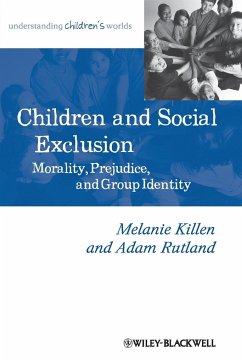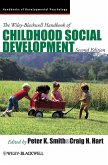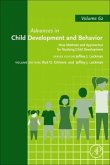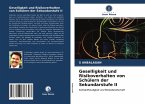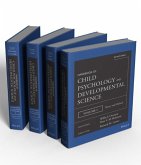Children and Social Exclusion: Morality, Prejudice, and Group Identity explores the origins of prejudice and the emergence of morality to explain why children include some and exclude others.
Formulates an original theory about children's experiences with exclusion and how they understand the world of discrimination based on group membership
Brings together Social Domain Theory and Social Identity Theory to explain how children view exclusion that often results in prejudice, and inclusion that reflects social justice and morality
Presents new research data consisting of in-depth interviews from childhood to late adolescence, observational findings with peer groups, and experimental paradigms that test how children understand group dynamics and social norms, and show either group bias or morality
Illustrates data with direct quotes from children along with diagrams depicting their social understanding
Presents new insights about the origins of prejudice and group bias, as well as morality and fairness, drawn from extensive original data
Hinweis: Dieser Artikel kann nur an eine deutsche Lieferadresse ausgeliefert werden.
Formulates an original theory about children's experiences with exclusion and how they understand the world of discrimination based on group membership
Brings together Social Domain Theory and Social Identity Theory to explain how children view exclusion that often results in prejudice, and inclusion that reflects social justice and morality
Presents new research data consisting of in-depth interviews from childhood to late adolescence, observational findings with peer groups, and experimental paradigms that test how children understand group dynamics and social norms, and show either group bias or morality
Illustrates data with direct quotes from children along with diagrams depicting their social understanding
Presents new insights about the origins of prejudice and group bias, as well as morality and fairness, drawn from extensive original data
Hinweis: Dieser Artikel kann nur an eine deutsche Lieferadresse ausgeliefert werden.
"Killen and Rutland provide expert broad-ranging reviewsof relevant theories, research, and interventions and conclude withan integrative framework for understanding and addressing peerexclusion." (Journal of Applied DevelopmentalPsychology, 2012)"Highly recommended. Upper-division undergraduates through facultyand professionals." (Choice, 1 November 2011)
"In sum, as we continue to understand and decipher thedevelopment of exclusion and inclusion in children, the frameworkprovided by Killen and Rutland will be an unequivocal guide andimpetus for a myriad of empirical studies in the human developmentfield. After reading this impressive book, I believe the future ofscholarship in this area (and our collective future) is bright andexciting!" (Human Development Journal, 2013)This is an outstanding book. Through their masterful integration ofdevelopmental and social psychological theories and research,Killen and Rutland have made a major contribution to ourunderstanding of children's morality, social identity, exclusion,and intergroup relationships. This very engaging book is amust-read for scholars and others interested in these important andtimely topics.
--Judi Smetana, University of Rochester
This book makes important and unique contributions to the studyof intergroup relations, morality, and social development. The authors, who are distinguished scholars in this area, introduceoriginal insights that synthesize past research and will guideresearch in this area for many years to come.
--John F. Dovidio, Yale University
This excellent book offers a sweeping treatment of a problemthat all people either experience or fear at some time in theirlives: social exclusion. The authors examine the problem from adevelopmental perspective, offering a comprehensive account of theroots, effects, and broader significance of social exclusionduring childhood. This original, integrative account now stands asthe definitive work on this familiar dimension of children's socialdevelopment.
-- William Damon, Stanford University
Killen and Rutland have done an extraordinary job illuminating acritical phenomenon: when and why children exclude other children.This topic has never been more important, and their book isscholarly, fascinating, wise, and extremely valuable. It is amust-read for everyone interested in understanding how to worktoward a just society.
--Carol Dweck, Stanford University
"In sum, as we continue to understand and decipher thedevelopment of exclusion and inclusion in children, the frameworkprovided by Killen and Rutland will be an unequivocal guide andimpetus for a myriad of empirical studies in the human developmentfield. After reading this impressive book, I believe the future ofscholarship in this area (and our collective future) is bright andexciting!" (Human Development Journal, 2013)This is an outstanding book. Through their masterful integration ofdevelopmental and social psychological theories and research,Killen and Rutland have made a major contribution to ourunderstanding of children's morality, social identity, exclusion,and intergroup relationships. This very engaging book is amust-read for scholars and others interested in these important andtimely topics.
--Judi Smetana, University of Rochester
This book makes important and unique contributions to the studyof intergroup relations, morality, and social development. The authors, who are distinguished scholars in this area, introduceoriginal insights that synthesize past research and will guideresearch in this area for many years to come.
--John F. Dovidio, Yale University
This excellent book offers a sweeping treatment of a problemthat all people either experience or fear at some time in theirlives: social exclusion. The authors examine the problem from adevelopmental perspective, offering a comprehensive account of theroots, effects, and broader significance of social exclusionduring childhood. This original, integrative account now stands asthe definitive work on this familiar dimension of children's socialdevelopment.
-- William Damon, Stanford University
Killen and Rutland have done an extraordinary job illuminating acritical phenomenon: when and why children exclude other children.This topic has never been more important, and their book isscholarly, fascinating, wise, and extremely valuable. It is amust-read for everyone interested in understanding how to worktoward a just society.
--Carol Dweck, Stanford University

